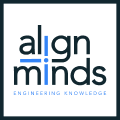MODIFIED ON: October 25, 2024 / ALIGNMINDS TECHNOLOGIES / 0 COMMENTS
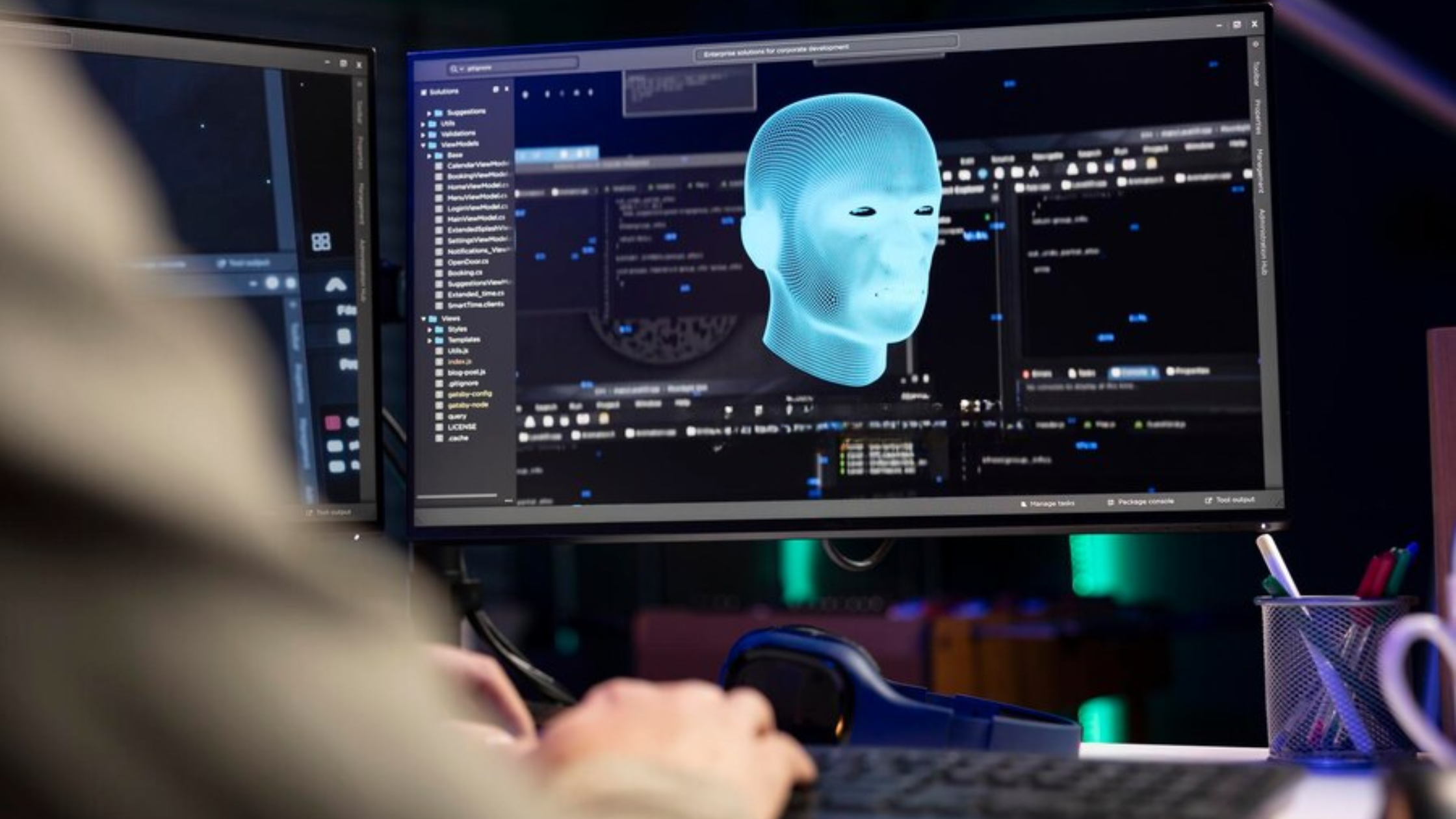
In 2020, the global low-code development market was valued at around $13 billion, and it’s projected to surpass $65 billion by 2027.
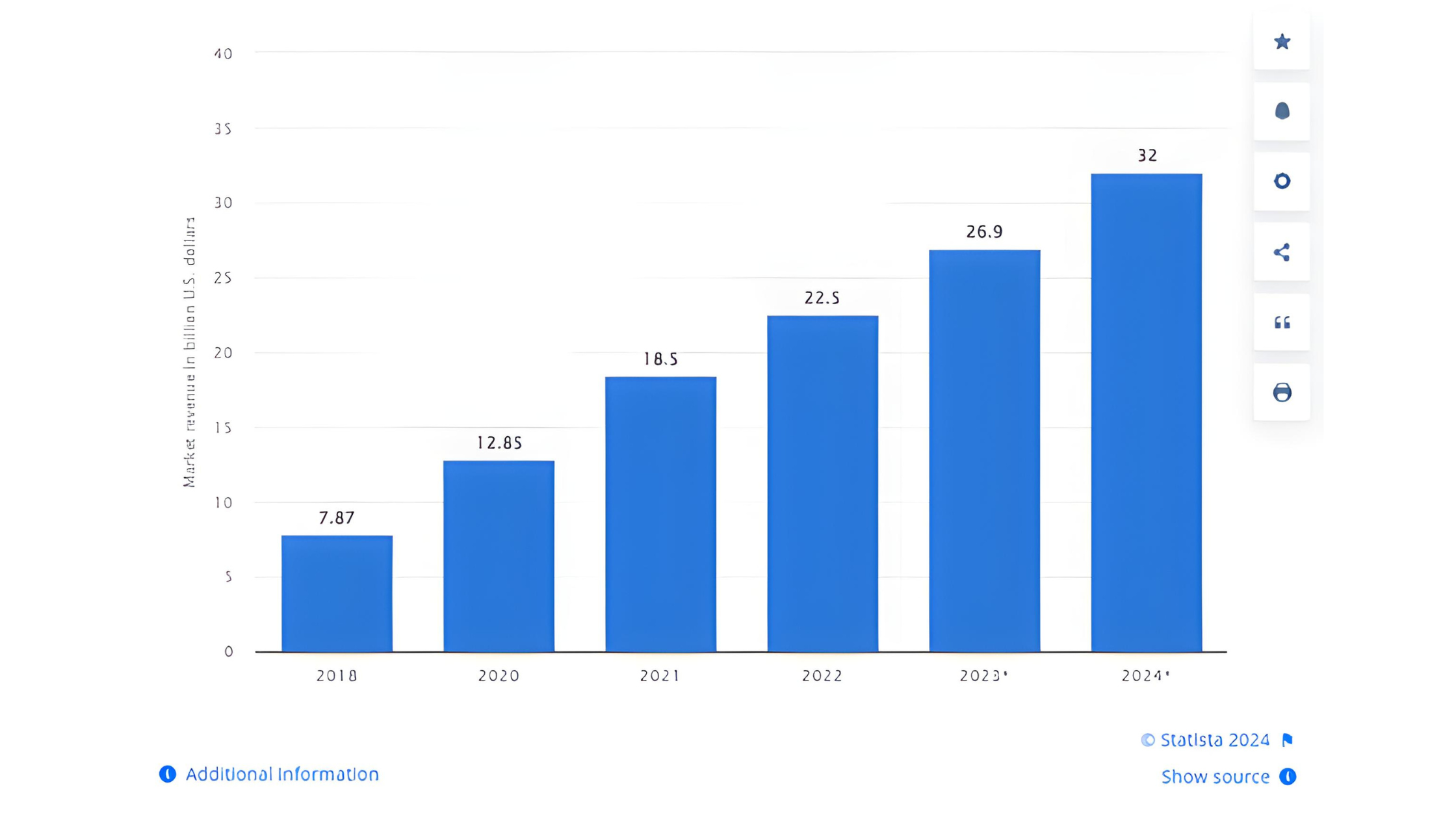
Source
This remarkable growth is fueled in part by the rise of generative AI, which is transforming how applications are developed.
Generative AI isn’t just revolutionizing traditional coding—it’s also significantly impacting low-code/no-code (LCNC) platforms. These platforms allow users with little to no coding experience to create custom applications with ease, and the integration of AI is accelerating this trend.
In this blog, we’ll explore how generative AI is shaping the future of low-code/no-code development, making app creation faster, and more accessible, and fostering greater collaboration across industries.
What Is Generative AI?
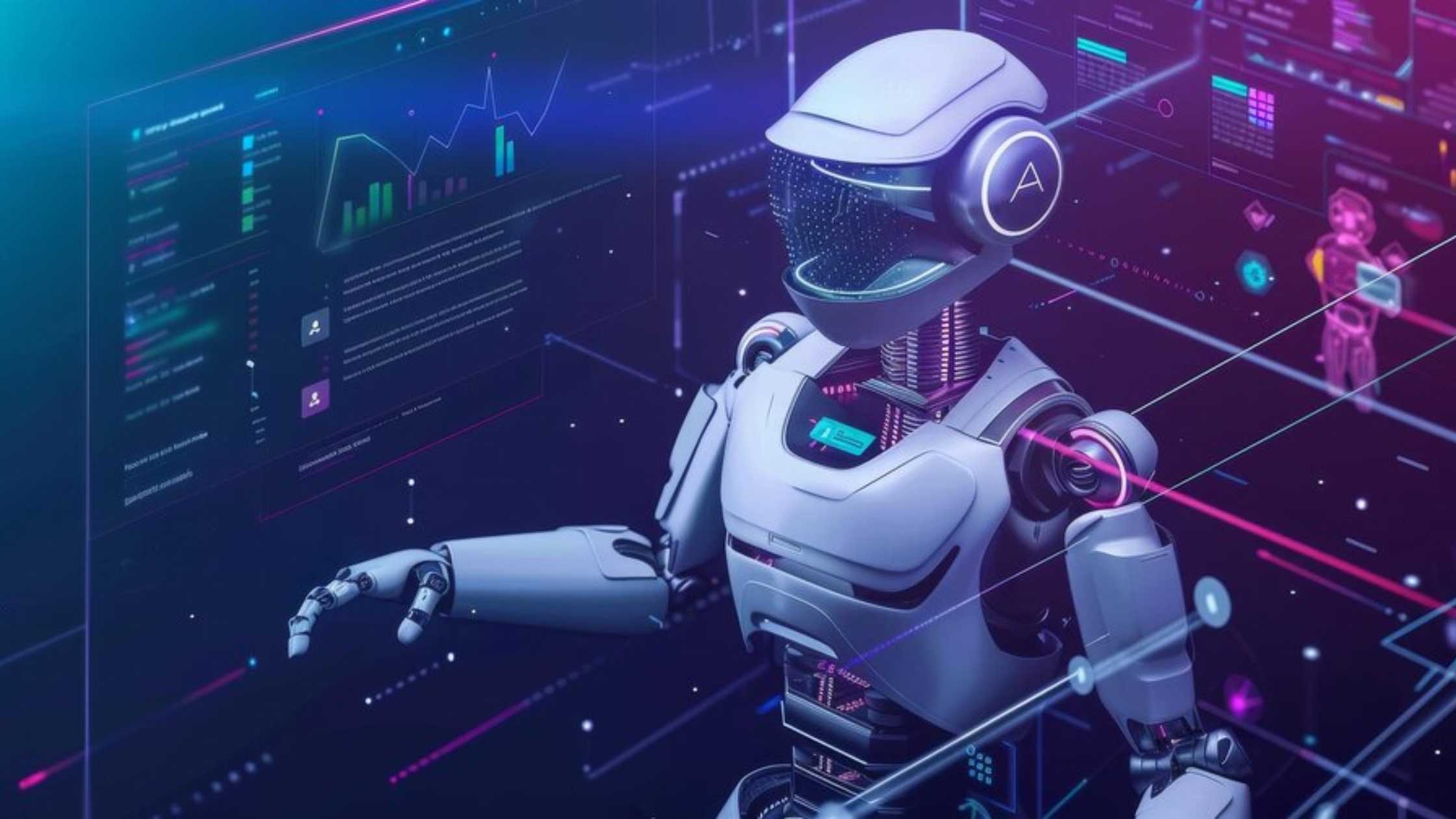
Generative AI (genAI) is one of the most advanced and widely used technologies today. It can create various types of content—such as text, images, audio, videos, synthetic data, and even code—just by using prompts. By leveraging complex algorithms, genAI generates relevant outputs based on the instructions it receives.
As this technology evolves, it is poised to revolutionize the coding industry, offering exciting possibilities for faster and more efficient development.
The Difference Between Low-Code and No-Code Development
In the ever-evolving world of technology, businesses constantly seek innovative ways to streamline their development processes. Gone are the days when developers spent countless hours manually coding websites and software. With the help of low-code and no-code (LCNC) platforms, creating apps and web pages is now quicker and easier, requiring little to no technical expertise.

But what sets low-code and no-code apart?
> Low-Code Development: This approach simplifies web and app development by using graphical user interfaces (GUIs) and drag-and-drop tools. It allows developers to build applications with minimal coding, significantly reducing the need for deep technical skills that traditional programming requires.
> No-Code Development: Taking things a step further, no-code platforms enable users—including non-developers—to create apps and websites without writing a single line of code. With pre-built templates and intuitive tools, anyone can design and launch applications effortlessly.
How Generative AI Will Impact Low-Code/No-Code Development
Generative AI is reshaping the coding industry in a big way. According to Grand View Research, the global no-code AI platform market is projected to soar from $3.83 billion in 2023 to $24.42 billion from 2024 – 2030, with a CAGR of 30.6%.
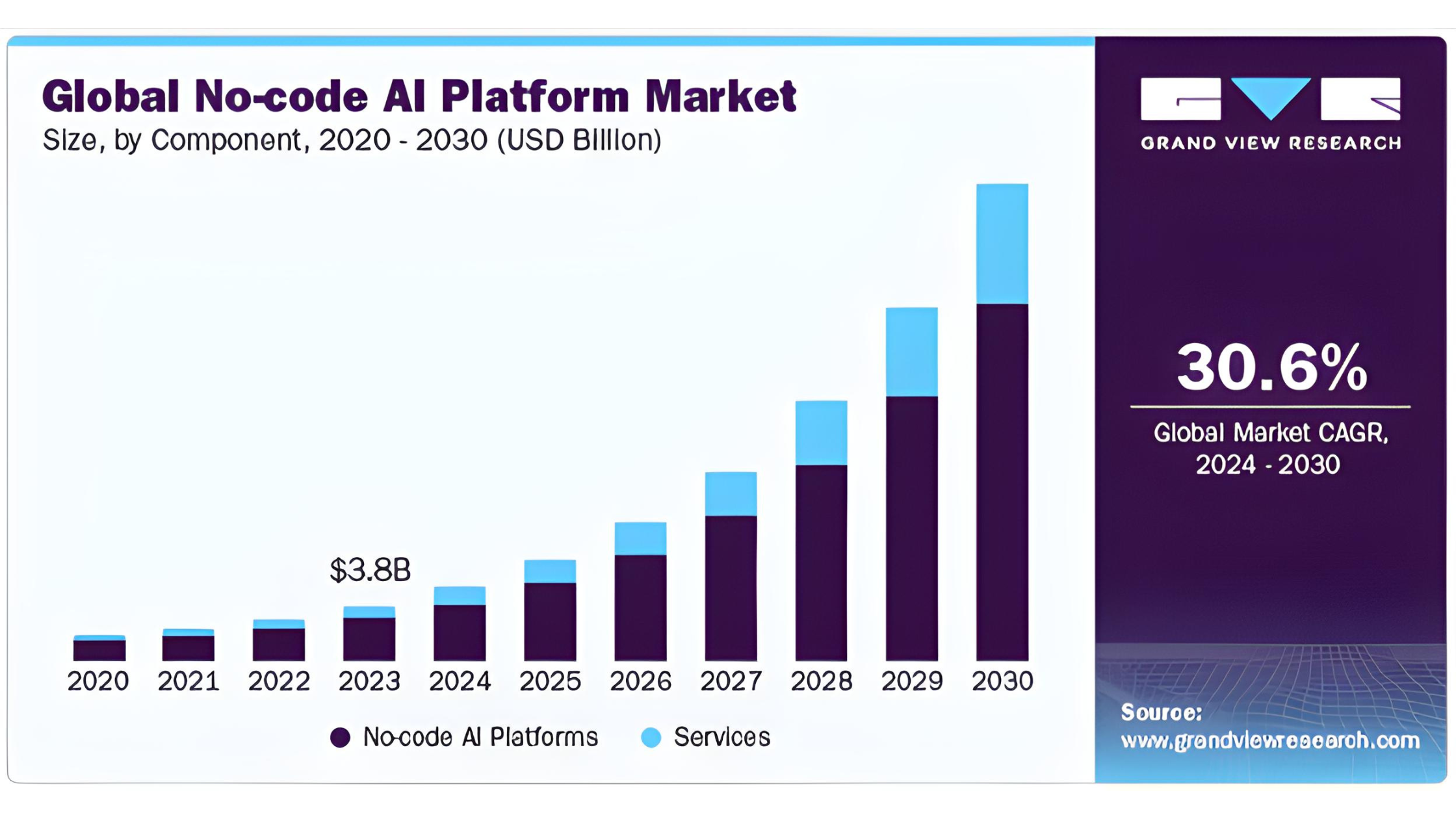
Let’s take a look at how GenAI will impact the LCNC platforms.
1. Faster, Smarter, and More Efficient Code Generation
Generative AI streamlines the development process, making it faster and more efficient. It can generate customizable code in seconds, providing greater flexibility and functionality compared to traditional low-code platforms, which rely on pre-written code snippets.
Additionally, AI’s capacity to learn from user interactions enables it to improve no-code platforms, offering capabilities that extend beyond basic drag-and-drop tools and pre-built templates.
2. Lowering the Barriers to Entry for Development
Low-code and no-code platforms have unlocked the world of app and web development, allowing even those with little to no technical expertise to bring their ideas to life. Generative AI takes this a step further, making LCNC platforms even more user-friendly and expanding their reach.
It simplifies complex processes, enabling more people to create apps and websites without the need for extensive coding knowledge.
3. Bridging the Gap Between Novices and Experts
Generative AI levels the playing field between seasoned developers and those with limited technical skills. It provides real-time guidance for novice users, while also acting as a time-saving assistant for experienced developers.
This powerful technology not only democratizes access to web and software development but also enhances collaboration across different skill levels.
4. GenAI Enhances Coding Accuracy, Efficiency, and Productivity
Generative AI automates routine and repetitive coding tasks, speeding up development while minimizing human error. This boosts productivity, allowing professional developers to focus on complex tasks that require manual attention. At the same time, it enables users to build web pages and apps more efficiently and effectively, making the development process smoother for everyone.
5. GenAI Enables the Creation of More Robust Web and Software Applications
By streamlining low-code and no-code development, generative AI enhances accuracy, boosts efficiency, and increases productivity. This means developers and users can create more reliable, high-quality web pages and software applications that offer an excellent user experience (UX). As a result, genAI helps deliver stronger, more dependable digital products.
6. GenAI Drives Technological Innovation and Business Growth
Generative AI is a game-changer that every developer and business should leverage. It not only fosters innovation in web and software development but also supports business scalability. By empowering users and developers to experiment with cutting-edge tools, genAI enables companies to stay at the forefront of technology and deliver world-class solutions.
7. GenAI Unlocks Cost-Saving and Profit-Generating Opportunities
Generative AI can help reduce development costs by allowing for the reuse of code components, reducing the need for extensive rewrites. No-code platforms also eliminate the need for coding expertise, further cutting costs. Ultimately, this AI technology allows businesses to lower expenses while focusing on driving revenue and profits.
Will GenAI Replace Low-Code and No-Code?
In our view, the answer is no—at least not in the short to medium term. Generative AI will complement low-code and no-code development platforms rather than replace them. Low-code and no-code platforms remain highly effective, especially for tasks like visual drag-and-drop interfaces and pre-built templates. Meanwhile, genAI can step in to handle more technical and complex tasks, enhancing the overall development process.
Additionally, tasks like testing, maintenance, and AI oversight still require a human touch, making it clear that genAI alone cannot be seen as a complete solution for code creation.
In Conclusion

Generative AI’s integration into low-code development signals a powerful blend of technologies that has the potential to transform the way we create software. With the promise of enhanced efficiency, broader accessibility, and accelerated innovation, the future of tech development looks incredibly promising.
For developers, IT professionals, and tech enthusiasts, keeping up with these advancements is more than just a good idea—it’s essential. In a world driven by innovation, those who embrace change will lead the way. Generative AI could soon bridge the gap between vision and execution, turning ideas into reality and redefining how software is brought to life.
If you’re ready to harness the power of generative AI and elevate your development projects, contact AlignMinds today. Let us help you stay ahead of the curve with cutting-edge AI and development services tailored to your needs.
-
Recent Posts
- 2024 Tech Trends: Gen AI and App Development Insights
- Generative AI Trends Shaping Mobile & Web Apps in 2025
- Strategic Investment in Scalable Web Applications for 2025
- App Development Challenges 2025 and AlignMinds Solutions
- AI for Personalized Mobile App Success in 2025
-
Categories
- MVP Development (5)
- AlignMinds (55)
- Operating Systems (1)
- Android POS (3)
- Application Hosting (1)
- Artificial Intelligence (43)
- Big Data (2)
- Blockchain (1)
- Cloud Application Development (7)
- Software Development (35)
- Software Testing (9)
- Strategy & User Experience Design (4)
- Web Application Development (27)
- Cyber Security (6)
- Outsourcing (7)
- Programming Languages (3)
- DevOps (5)
- Software Designing (6)
- How to Code (4)
- Internet of Things (1)
- Machine Learning (2)
- Mobile App Marketing (5)
- Mobile Application Development (23)
- Mobile Applications (8)


